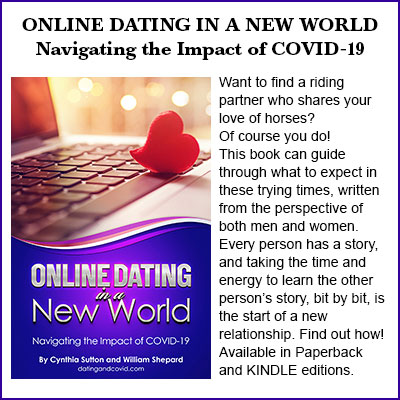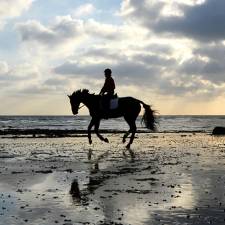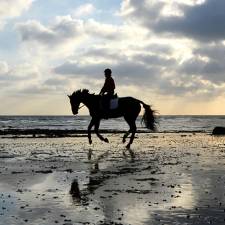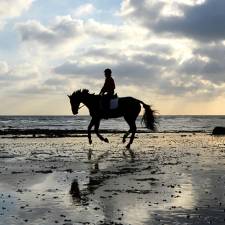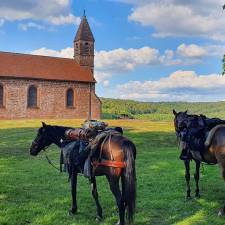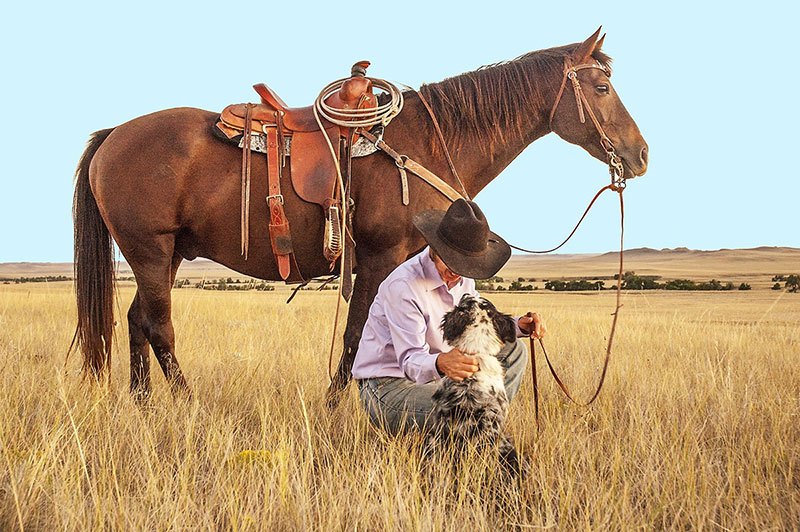
by the EIE Editorial Staff
Owning a horse can be a wonderful and life fulfilling experience. For many of us it is a lifelong dream come true. As a child, how many of us would blow out birthday candles fervently wishing for a pony or horse? You’ve decided that now it’s time to move forward and actually purchase a horse of your own.
Taking the plunge can be an intimidating process since for most people, buying a horse is a completely unfamiliar journey.
Learning from other’s mistakes is a great way to prepare for your purchase of a horse. So, what are some of the pitfalls to avoid?
We’ve compiled a list of the top 10 of the most common mistakes novice horse owners make when buying a horse or pony.
Common Mistakes People Make When Buying Their First Horse
- Buying Sight-Unseen or on the Internet
- Purchasing a Horse Based Solely on Color
- Thinking a Free Horse is Really Free
- Failing to Seek Out Experienced Advice when Purchasing
- Not Buying a Horse That Fulfills Your Needs
- Buying from People With No, (or Questionable), Reputations
- Not Trying the Horse for Yourself
- Going Blindly into an Auction
- Buying an Untrained Horse
- Not Considering Older Horses
1. Buying Sight-Unseen or on the Internet
We are all emotionally touched by the magnificent horses we see online. There are beautiful cinematic videos on the Internet of horses moving gallantly and gracefully, well photographed and compelling. The animal is jumping like a dream, running barrels in record time, or simply galloping free through a picturesque landscape.
Today, virtually everything is available online. It’s perfectly reasonable to think that this should apply to horses as well, but it doesn’t. Horses aren’t commodities. They are individuals, with unique needs and temperaments, and like the foundation of all successful long-term relationships, you must have a strong connection.
A horse only familiar with its previous owner or trainer may perform very differently for a new owner or in a new environment. Meeting the horse in person will allow you to see firsthand what the horse is like, and how the two of you mesh. You would never buy a car without a test drive, so why wouldn’t you take the same precaution for a transaction which is much more personal than buying a car?
Another important point to consider with an online/video purchase, is that videos are edited. For example, that beautiful jumping sequence could have been the result of multiple “takes” done many times, (or even shot over several days of shooting), to highlight the very best performance of the horse.
Pro Tip: Many online horse sales are “as-is”, and there is often a “no return, no refund” policy. If the online seller doesn’t warranty the purchase, as a beginner, just stay away. Go in person to meet the horse. Do not buy any horse or pony solely on the basis of a website or a video advertisement.
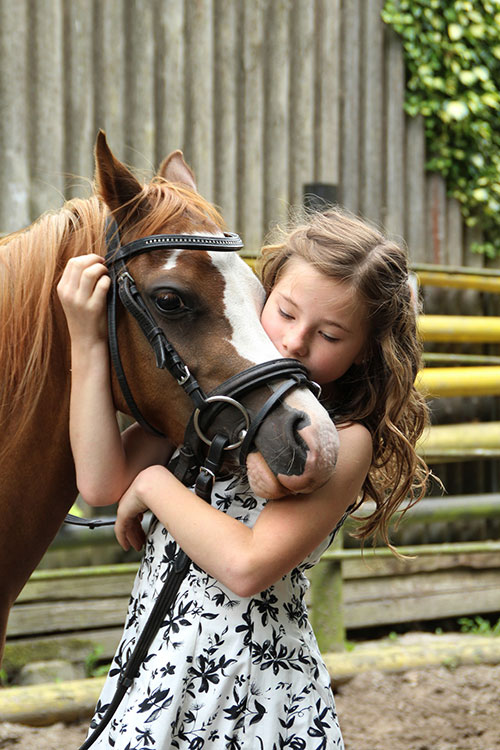
2. Purchasing a Horse Solely on Color
There’s no denying that the physical appearance of a horse factors into our buying decision. Perhaps you’re moved by the big dappled grey horse, or maybe the golden Palomino? We all have our favorites, and the color of the horse is definitely a factor in our purchasing decision.
But it’s not the only factor, not even close.
Buying a horse based solely on color can be both disappointing and a costly mistake. It’s much more important whether or not the horse will fulfill the role you have envisioned for it.
Are you looking for a “pet” for the family to ride? Wouldn’t you agree that temperament is more important than the prettiest color? If you’re thinking of a more specialized use, color is even less important – you want an animal that will meet your performance requirements first.
We know of several owners of significant means who purchased based primarily on color. All were consistently disappointed in their horses’ subsequent performance. Selecting a horse based on coat color is similar to selecting a life partner based solely on hair color!
Pro Tip: Unless you are shopping for an expensive lawn ornament, don’t make color the top priority.
3. Thinking a Free Horse is Really Free
We’ve all heard the expression, “Never look a gift horse in the mouth.” Well, we SHOULD always look a horse in the mouth (as the teeth indicate age) as well as everywhere else on the horse’s body!
A free horse is never really free. First, with even a free horse, you should have a thorough veterinary exam to see if the horse has any physical issues. Maybe it is arthritic and needs supplements. Perhaps it has an old injury which requires attention and ongoing chiropractic or veterinary care. It is important to know the associated heath care costs of your “Free” horse in addition to the cost of ANY horse, such as boarding, feeding, shoeing, and other veterinary bills such as vaccination and dental care.
Pro Tip: It costs the same amount to feed a free horse as it does an expensive horse, and if the horse is free, there may be a good reason! Be aware of what you’re getting yourself into before accepting this “gift” which keeps on taking money from your pocket!
4. Failing to Seek Out Experienced Advice When Purchasing
Thank you for reading this list and utilizing the resources on Having Horses in your quest to purchase your first horse! It’s a great sign that you’re seeking out expert advice in your online research.
But this is not enough.
It’s natural to think that online research is sufficient for just about everything. As a prospective buyer, we believe that we’ve seen enough horses, did our online research, read enough books and maybe even watched friends buy horses to think that we can do it on our own.
We don’t recommend going it alone.
If this your first “rodeo”, it is never a bad idea to seek the advice of trusted professionals, experience with the buying and selling of horses and all the subtleties and nuances that only come from years of real-life experience with living, breathing animals.
Experts can point you in the right direction and can guide you past the emotional strings which may be attached to buying a horse or pony. Purchasing and owning a horse is a very costly long-term venture, (and surprisingly), perhaps the least expensive part of owning a horse is the initial purchase. But this initial purchase can set the stage for the level of expenditure over the coming years.
This is why the advice of experts is indispensable. Boarding, feeding, veterinary work, shoeing, and other costs need to be considered so make sure you leverage experts in these fields NOW, for the purchase, to set you up for success for both the purchase and the ownership expenses over the coming years.
Pro Tip: Find someone you trust (or was recommended to you with a great reputation) and have them guide you through the selection and purchasing process.
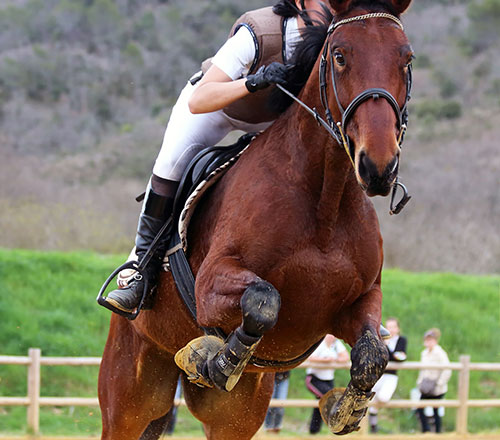
5. Not Buying a Horse that Fulfils Your Needs
What is your future horse going to do?
What role do you see it fulfilling? Are you planning on buying a gentle old soul to live in a small stable in your backyard and occasionally carry an inexperienced rider slowly around the yard from time to time?
Perhaps you are interested in entering the horse in competition? Maybe a show horse, or a racing horse?
There are thousands of potential reasons why you’re interested in buying a horse, and it’s important that you’re clear on what your expectations are prior to searching for and buying your first horse. Once you know what your horse’s purpose is, you can narrow down the breed, age, temperament, and other requirements. This way you won’t end up with a spirited thoroughbred mismatched to pulling a hay cart, or a wonderful trail horse expected to compete in barrel racing.
Pro Tip: Make sure you buy a horse which serves your purpose, however you ride. For more information types of horse breeds click here.
6. Buying from People With No, (or Questionable), Reputations
There is a reason why “horse trader” has a negative connotation. Sadly, there are many people who want to take advantage of buyers with kind hearts and little experience or knowledge. Unfortunately, slick brokers exist in every discipline for horses costing from only a few hundred, all the way up to millions of, dollars! Your heart is in the right place and you may think that because you are transparent and work with integrity that the seller will do the same – especially with a living entity like a horse.
While most sellers are reputable, there are exceptions. Try to do some independent research on the seller before your even meet them. Reach out to people who have previously dealt with the seller to see what feedback they offer. Ask for references from the seller and follow up by checking with all them. Ask the references for specific details.
Believe what you see and not necessarily what you hear. If anything sounds fishy, don’t let it go. There shouldn’t be any legitimate reason why a seller wouldn’t allow you a “test ride”. Trust your gut if you feel that the seller is being deceptive or unethical, walk away!
Pro Tip: Never purchase a horse without having a qualified veterinarian inspect the horse first.
7. Not Trying the Horse for Yourself
No two horses are exactly the same. Riding a horse you’re unfamiliar with is very different driving an unfamiliar car. You can’t just adjust the seat position and mirrors and go. It’s a personal experience and you must see if you have a connection. You can only determine this by riding it yourself, and not just watching someone else ride it.
Consider this experience of someone recently looking to buy a jumping horse:
“When I arrived to see the horse I saw the seller riding it with great ease. It looked like a dream come true. The horse’s lead changes were effortless and it jumped like it sprouted wings. I thought I found the perfect horse!
Then I got on. What happened? This didn’t feel like the same horse I saw moments ago. The horse wouldn’t go forward when asked and hesitated over fences. It wasn’t a bad horse – it just wasn’t a fit for me!”
Pro Tip: You’re entering a long-term relationship with a beautiful horse. Try it out in the manner you intend to use it!
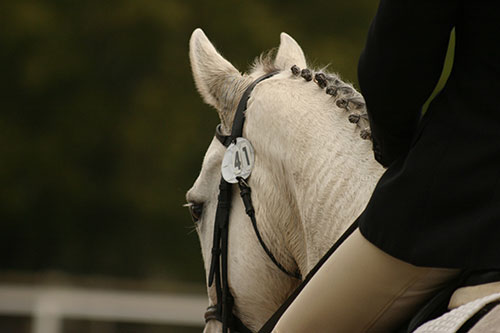
8. Going Blindly into an Auction
Horses are often sold at auctions. If you’ve ever been to an auction before you know that it’s easy to get caught up in the emotion and excitement of bidding.
Whether an auction is for antiques, jewelry, or horses, the principle is the same. People are motivated by scarcity and the fear of missing out. These are very powerful motivators, and you musts strive to remain unemotional and bid rationally.
Do your pre-auction homework. Determine which animal(s) you’re interested in, and what your think they’re worth … “to you”. The “to you” is important, because if you think that a certain horse is worth $5,000 to you, and it quickly jumps up to $10,000, don’t be so emotionally attached that you “chase the bid” in fear of “missing out”. If it’s worth $10,000, or more, to someone else, that’s fine. There are always other horses, and if necessary, other auctions. Keep to your plan…and budget!
If you recognize that it’s very difficult for you not to get emotionally invested in the excitement, then bring a friend who will help you sit on your hands!
Pro Tip: Go to a couple of “practice” auctions without your checkbook as an observer. Get a feel for the environment and procedures. If you are interested in buying a horse at auction, understand the process and rules of that particular auction and, if possible, go with an expert to help guide you and consult with a veterinarian.
9. Buying an Untrained Horse
It may be more economical to buy a horse which is untrained, but as the old saying goes, “What is cheap becomes expensive.”
Do you possess the expertise and resources to train your own horse? Do you have time to train the horse? Can you provide consistency? If the answers to these questions are “yes”, you’re probably above the level of this article. For the vast majority of first-time buyers, they’re not experts in training horses, nor do they possess the time, money and resources to do so themselves.
Often overlooked upsides of buying a trained horse are:
- You do you not have to train the horse yourself.
- You’re guaranteed that the horse you buy is able to perform in the intended discipline for which it was trained.
- It’s easier to can bond with a trained horse as a team.
Pro Tip: If you’re a novice or don’t have the expertise, time, money or resources to train a horse, buy one that’s already trained.
10. Not Considering Older Horses
Horses typically live 25 to 30 years, or more. Depending on your intended use, an older horse may be a perfect fit. If you are seeking a reliable confidence building horse which will pack you around a hunt course or be a calm and safe trail riding horse for your child, you should consider an older horse.
An older horse often has a “been there done that” attitude that is well suited to first-time or novice horse owners.
The same rules apply when buying an older horse as to buying a younger one. Try it out for yourself, and have a prepurchase exam by a veterinarian to see if there are any issues which may present a challenge in years to come.
Pro Tip: Don’t pass over an older horse that will suit your needs.
Conclusion
Buying your first horse can be intimidating, but with a little bit of research and common sense, you can avoid the common mistakes first-time buyers typically make. Are there more? Let us know at info@equineinfoexchange.com!
You can find more interesting articles in our section on Recreation & Lifestyle.






